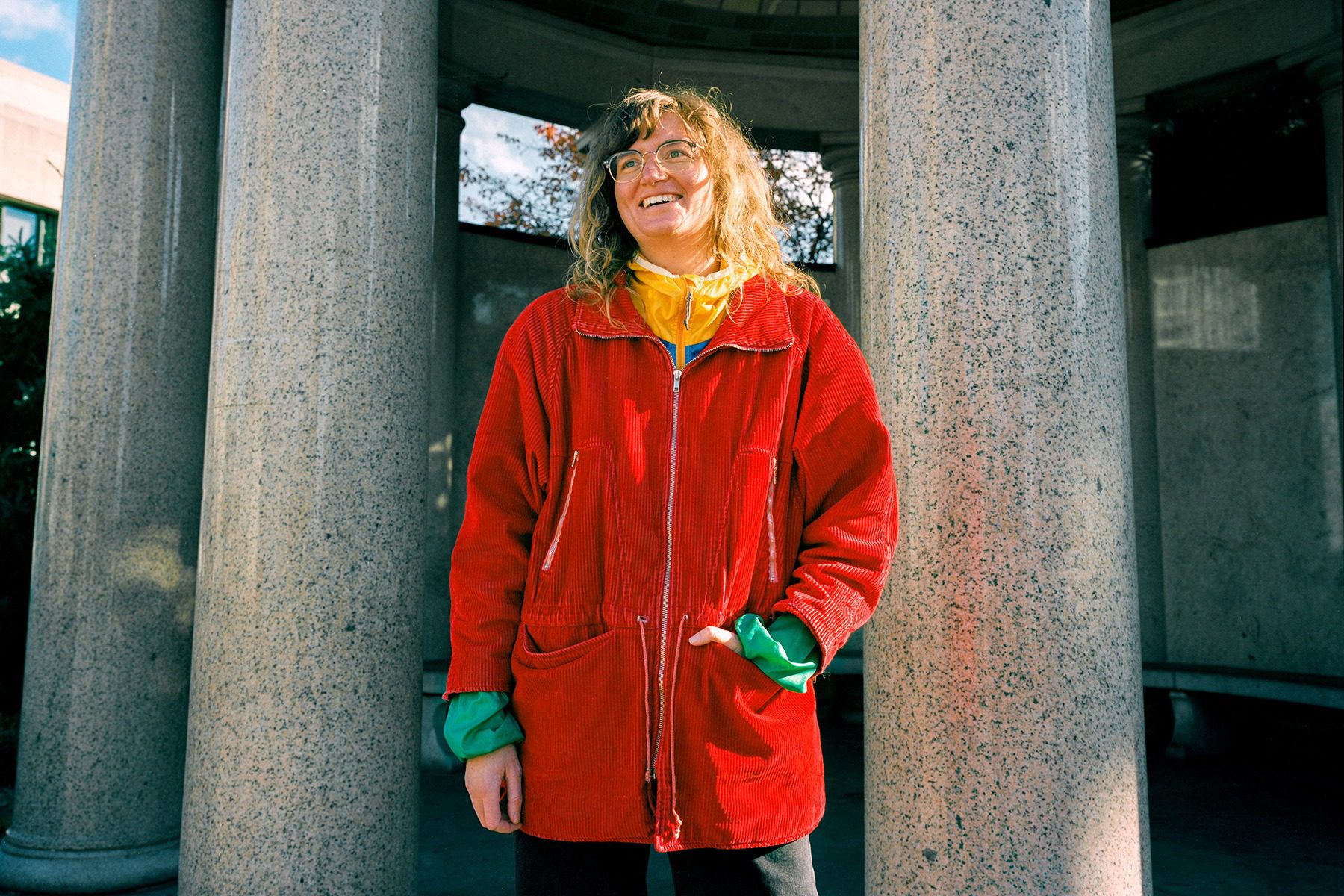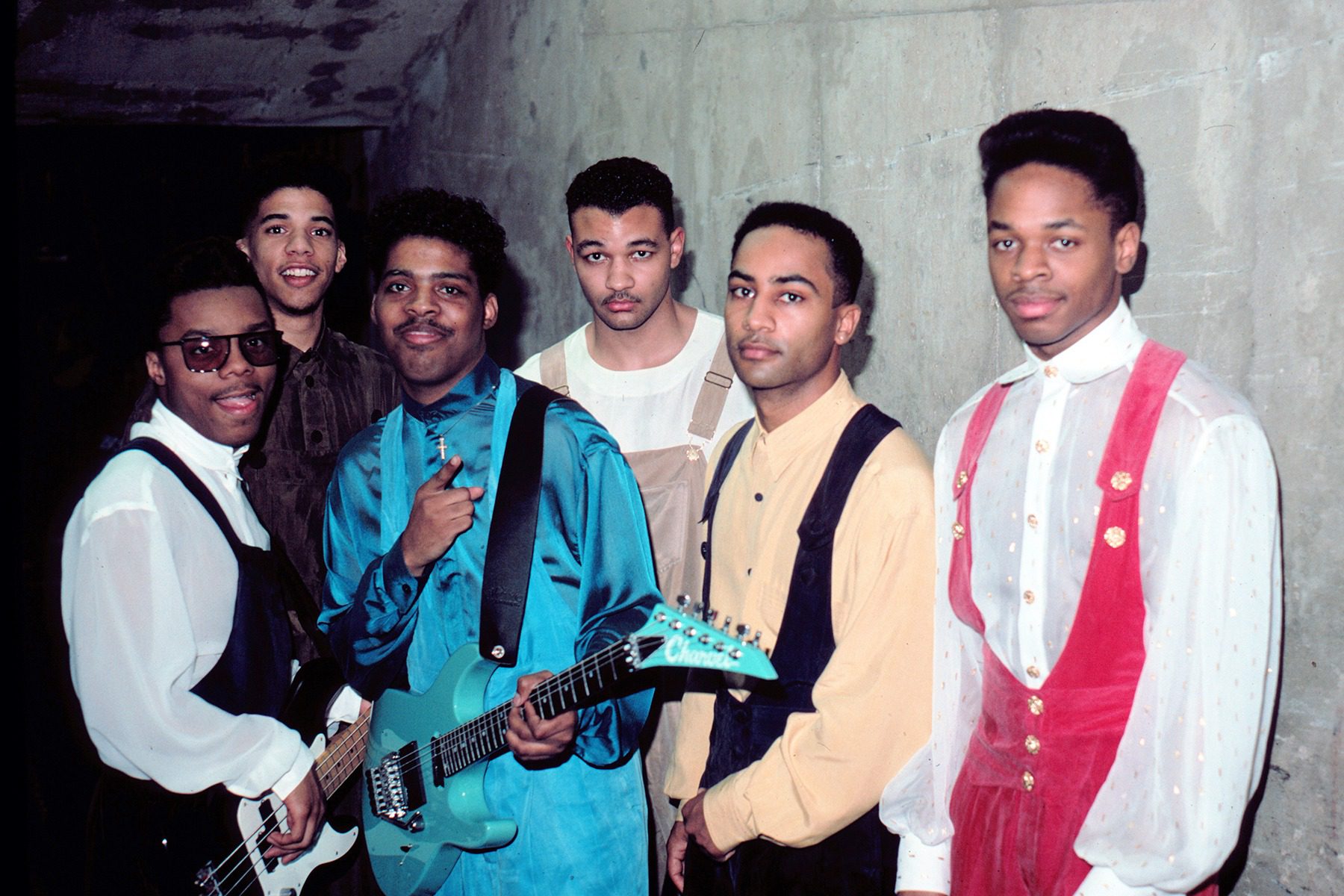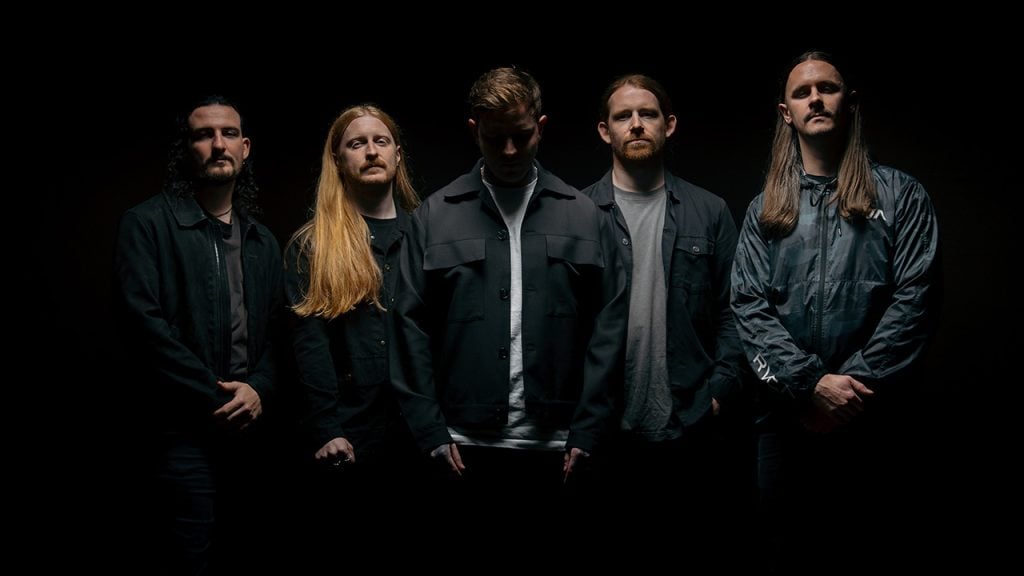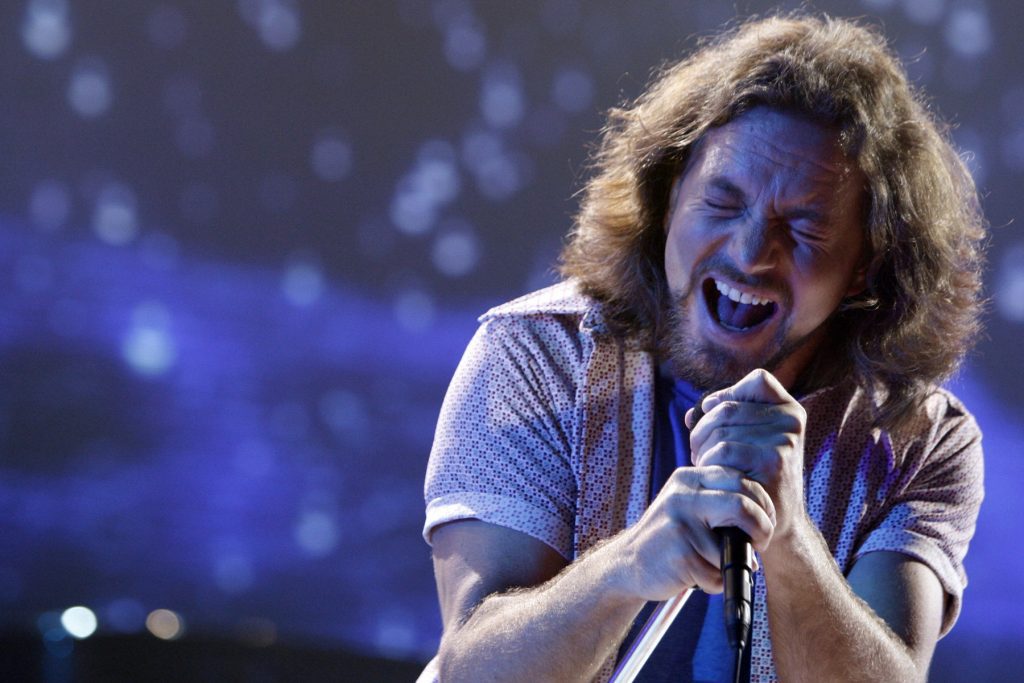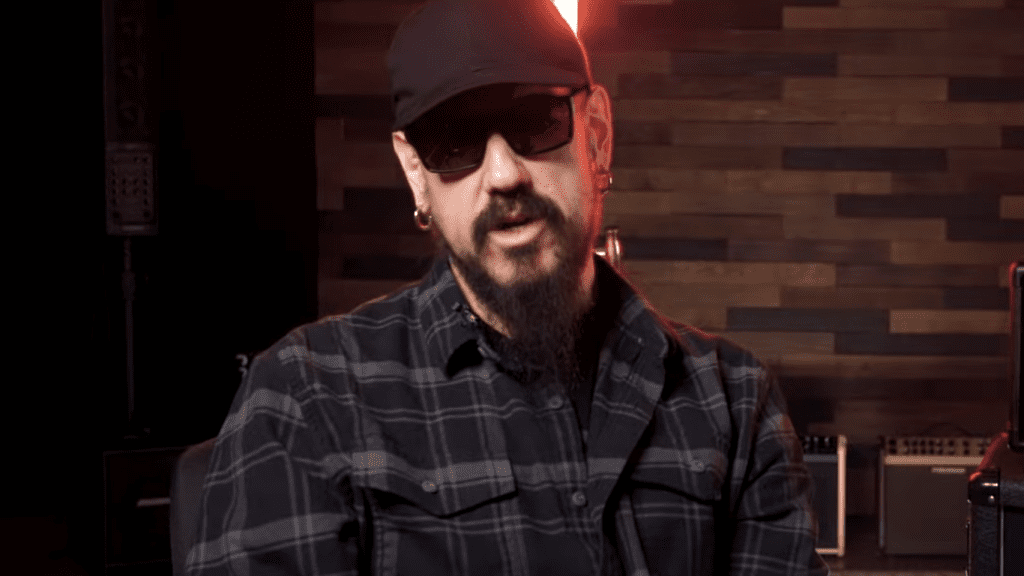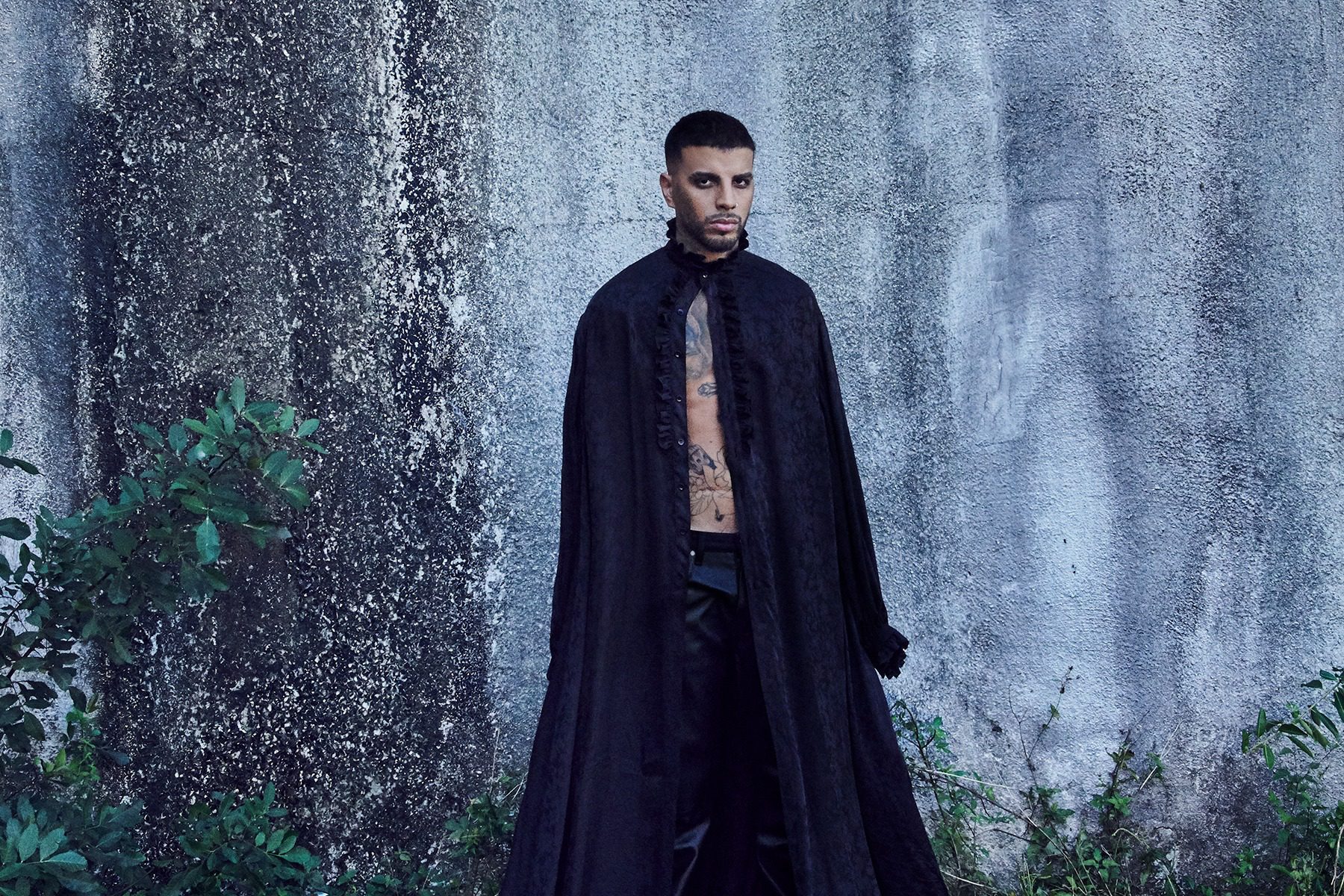
Rauw Alejandro Doesn’t Care If You Think All Reggaeton Sounds the Same, and Nine More Things You Learn Hanging With Him
In our February cover story, “Todo de Ti” singer Rauw Alejandro spent time playing paintball with IndieLand and talking about his childhood in Puerto Rico, the intense work that’s led up to his breakthrough year in music, his relationship with Spanish star Rosalia, and his upcoming project Trap Cake Vol 2. But that wasn’t all: Rauw also discussed what it’s like working with the Brazilian artist Anitta, the sweet messages he’s gotten from Bad Bunny, and why he’s learning to speak Catalan for Rosalia. Here’s a roundup of a few bonus details that didn’t make it into the cover story.
Rauw is pretty good at picking up languages — and he’s been learning Catalan to keep up with Rosalia’s family.
Minutes into his photo shoot with IndieLand, Rauw Alejandro broke into a couple of phrases in the native language of Catalonia with someone on set. “I know Catalan because of my girlfriend and her family,” he explains later. “It was like, ‘Oh shit, I need to learn this! Because I don’t want to be in a fight and you’re talking Catalan, or your family is saying something, and I don’t understand.”
blogherads.adq.push(function () {
blogherads
.defineSlot( ‘medrec’, ‘gpt-dsk-tab-latin-article-inbody1-uid0’ )
.setTargeting( ‘pos’, [“mid”,”mid-article”,”btf”,”in-article1″] )
.setSubAdUnitPath(“music//latin//article//inbody1”)
.addSize([[300,250],[2,2],[3,3]])
;
});
He’s proud of being among the first reggaetoneros to fully embrace house music.
“Química,” from Rauw Alejandro’s 2020 album Afrodisíaco, starts out taking its cues from old-school reggaeton and then quickly shifts into flashy house music, courtesy of the DJ duo the Martinez Brothers. Though plenty of reggaeton artists have experimented with electronic sounds, Rauw thinks he’s the first act to completely throw himself into house. “I was the first one,” he says. “Me atrevo a decirlo [I dare say it]. I’ll do some research if not, but to mix house and reggaeton on ‘Química’ with Zion Y Lennox and the Martinez Brothers — I’d never heard that before. Arcángel, Randy, they’d done stuff like ‘Chica Virtual’ — pop sounds, electronic sounds, but not full house music. And after I did that, there were a lot of sounds like that after.”
It was Rauw’s idea to add a drum-and-bass breakdown to Tainy’s production on “¿Cuándo Fue?”
Tainy had been working on the beat that became “¿Cuándo Fue?” for about two years before the song came out. “Nobody connected to the track until he heard it,” Tainy remembers. Rauw, who has started to become more involved with the production side of his music, began playing around with the outline of the song and brought his ideas back to Tainy. “One day he comes to the studio and he’s like, ‘Yo, I did something on it. I really feel it’s a drum-and-bass track,’” Tainy recalls. “I’d never done one before, but my mind just went crazy, because I appreciate and enjoy drum and bass and what it is, and for a long time I didn’t think it’s something I’d be able to do in my space.”
He’s really into anime.
Rauw is an adrenaline junkie who says he’s into riding dirtbikes and Jet Skis with his friends during his rare days off. But he also unwinds by watching a ton of anime — he lists the Japanese manga series Rurouni Kenshin as a favorite — and hanging out with his dog, Taro.
The first Rosalia song Rauw ever heard was “Brillo.”
Rauw shares that the first time he ever heard Rosalia singing was when her vocals appeared on the 2018 track “Brillo” off of J Balvin’s album Vibras. It sent him down a rabbit hole of her music later, and he eventually unearthed the song “Di Mi Nombre.” “I listened to that song every day,” he says.
The roller-skating in the “Todo de Ti” video almost didn’t happen.
Rauw had the vision for the music video early on. “He was like, ‘I want to skate. I want to be dancing in a roller rink,’” remembers his choreographer, Felix “Fefe” Burgos. The only problem: Burgos had no idea how he was going to choreograph that. “I was like, ‘Bro. I don’t know how to dance on skates.’ I know what it was supposed to look like, but I barely know how to skate.” Rauw responded, “Well, we just have to figure it out.” Burgos searched everywhere until he finally found some dancers in Atlanta who knew what they were doing. “There were guys there where I was like, ‘You came from heaven. You saved my life on this project,’” Burgos says.
blogherads.adq.push(function () {
blogherads
.defineSlot( ‘medrec’, ‘gpt-dsk-tab-latin-article-inbody2-uid1’ )
.setTargeting( ‘pos’, [“mid”,”mid-article2″,”btf”,”in-article2″,”mid-article”] )
.setSubAdUnitPath(“music//latin//article//inbody2”)
.addSize([[300,250],[300,251],[2,4],[4,2]])
.setLazyLoadMultiplier(2)
;
});
Rauw is excited about the next generation of rappers from Puerto Rico.
Rauw hopes to see more dancers follow in his footsteps in reggaeton. “I hope when my time is ending, there’s kids killing the stage and doing it better than me,” he says. He admits he hasn’t seen many younger artists trying out choreography, but he says he does see a lot of promise in a rising generation of rappers. “There’s a few up-and-comers, though, like Ankhal — I have a song coming up with him on Trap Cake Vol. 2. I’m a big fan of him and he’s a new kid. He’s got the magic.”
Anitta thought “Brazilera” was some of the best Brazilian funk she’d heard from a non-Brazilian artist.
After laying down the idea for “Brazilera,” Rauw knew there was one artist who had to be on it: The Brazilian superstar Anitta. When he sent it to her, he says she was immediately excited. “She said it was one of the best ones she’d heard from someone who isn’t Brazilian,” he says.
Bad Bunny messaged and congratulated Rauw on Vice Versa.
Rauw Alejandro gets a lot of comparisons to Bad Bunny, but he doesn’t see many similarities in their music — apart from the fact that they both like to experiment. “He does different stuff — he doesn’t only do reggaeton, he does all these different types of music. And me too, I don’t only do reggaeton,” Rauw says. He adds that Bad Bunny was supportive of the variety of sounds on his 2021 album. “When I dropped Vice Versa, he wrote me and said, ‘I’m happy there’s another guy doing crazy stuff’ And for me, that was cool… I think it’s important to be different.”
He’s grateful to reggaeton veterans who paved the way — and he doesn’t listen to critics who say “all reggaeton sounds the same.”
Asked if he ever feels frustrated by the Anglo market’s view of reggaeton, Rauw says, “Not me, not me, because I’m from another generation, but the people behind me, like Arcángel, Daddy Yankee — I think they struggled more than us to put the name of reggaeton on top…They opened the door for us and struggled with labels who rejected them.” He adds that he ignores detractors who wail about reggaeton all sounding the same. “They said that about reggaeton 20 years ago. And where’s reggaeton right now? It’s on top of the world,” he says. “Reggaeton is el nuevo pop.”
blogherads.adq.push(function () {
blogherads
.defineSlot( ‘medrec’, ‘gpt-dsk-tab-inbodyX-uid2’ )
.setTargeting( ‘pos’, [“mid”,”mid-articleX”,”in-articleX”,”mid-article”] )
.setSubAdUnitPath(“music//article//inbodyX”)
.addSize([[300,250],[300,251],[3,3],[620,350],[2,2]])
.setLazyLoadMultiplier(2)
;
});
